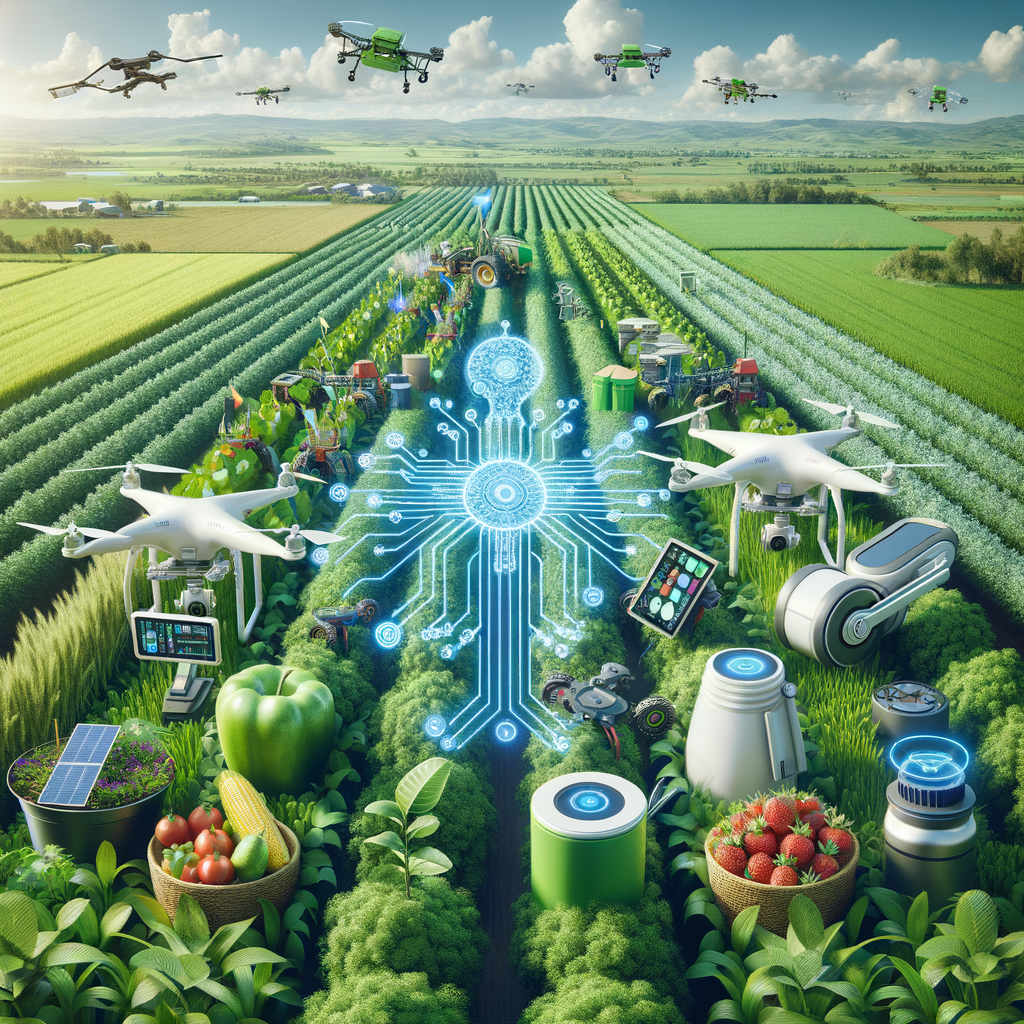
AI-Powered Tools and Technologies for Sustainable Agriculture
Explore how artificial intelligence is revolutionizing agriculture by improving crop yields, reducing resource consumption, and promoting sustainable farming practices. Delve into cutting-edge AI tools and technologies that are transforming the agri-tech landscape, ensuring food security and environmental conservation for future generations.
Introduction
In recent years, the agricultural sector has witnessed a significant transformation, driven by the integration of advanced technologies such as artificial intelligence (AI). With the global population rising and the demand for food increasing, there is an urgent need for innovative solutions that can enhance agricultural productivity while ensuring sustainability. AI-powered tools and technologies are increasingly being deployed to address these challenges, providing insights that were previously unattainable through traditional farming methods.
Understanding AI in Agriculture
Artificial intelligence, with its capability to process vast amounts of data and identify patterns, is proving to be a game-changer in the agricultural sector. AI technologies employ machine learning algorithms, computer vision, and robotics to simulate human intelligence and automate tasks, providing farmers with invaluable tools to optimize their operations.
Key AI Technologies Transforming Agriculture
-
Precision Agriculture: Precision agriculture leverages AI and machine learning to analyze data collected from various sources such as remote sensors, aerial imagery, and soil samples. This analysis allows farmers to make informed decisions about when and how to plant crops, manage pest control, and optimize water usage, thereby increasing efficiency and reducing waste.
-
Smart Irrigation Systems: AI-powered irrigation systems use data from weather forecasts, soil sensors, and historical crop performance to determine the precise amount of water needed for each area of a field. This smart system helps in conserving water resources and improving crop yields.
-
Crop Monitoring and Health Assessment: AI technology, through drones and satellite imagery, provides real-time insights into the health of crops. AI algorithms can predict diseases, detect pest infestations, or assess nutrient deficiencies from the images captured, enabling farmers to address issues promptly and reduce crop loss.
-
Yield Prediction Models: By analyzing historical data and current environmental conditions, AI models can accurately predict crop yields. Farmers can use these predictions to plan logistics, manage supplies, and prioritize land use more effectively.
-
Automated Machinery and Robotics: The integration of AI into robotics has enabled the development of autonomous machinery that can perform repetitive and labor-intensive tasks such as planting, harvesting, and weeding. These robots increase productivity, reduce manual labor costs, and minimize human error.
The Benefits of AI in Agriculture
a. Enhanced Productivity: With the help of AI, farmers can achieve higher yields with the same or reduced resource input.
b. Resource Efficiency: AI solutions promote sustainable use of resources like water and soil, aligning with environmentally friendly practices.
c. Cost Reduction: Automating various farming operations helps to lower operational costs and improve profit margins.
Challenges and Future Prospects
Despite the significant advantages, the adoption of AI in agriculture is not without challenges. High implementation costs, the requirement for technical expertise, and data privacy concerns pose barriers to widespread adoption. Additionally, adapting to rapid technological changes requires investments in education and skills development.
However, as AI technology continues to evolve, there are promising prospects for overcoming these challenges. Collaborative efforts among tech companies, agricultural researchers, policymakers, and farmers are essential to fully harness the potential of AI in agriculture.
Conclusion
AI-powered tools and technologies have the potential to revolutionize the agricultural sector by boosting productivity, enhancing sustainability, and ensuring food security. As the world confronts increasing challenges related to food production and environmental conservation, AI will play a crucial role in shaping the future of agriculture. Embracing these advancements, while addressing the associated challenges, will be vital in achieving a sustainable and prosperous agricultural ecosystem.